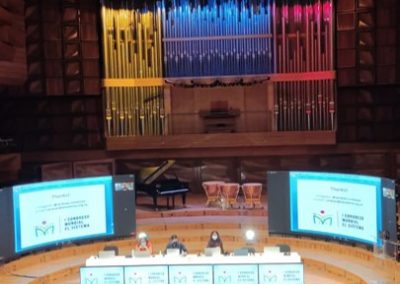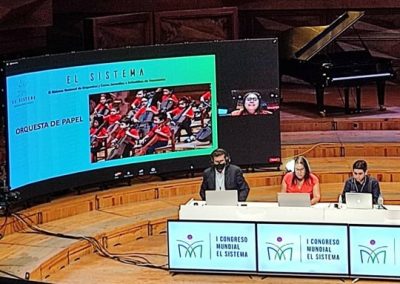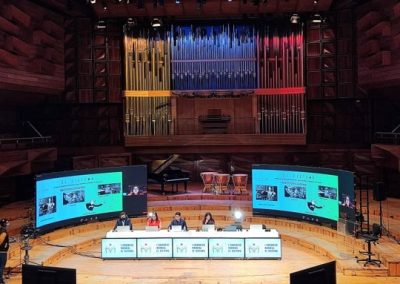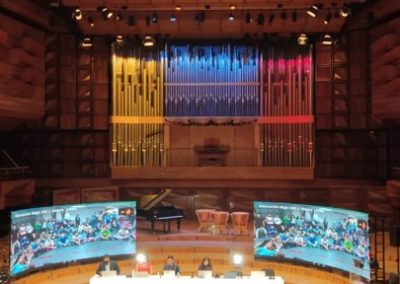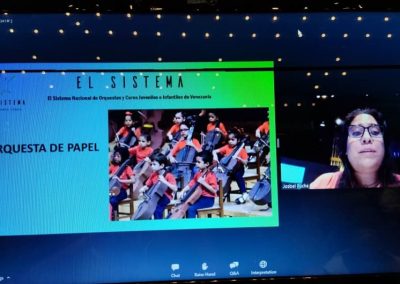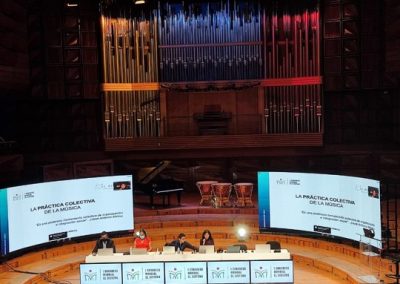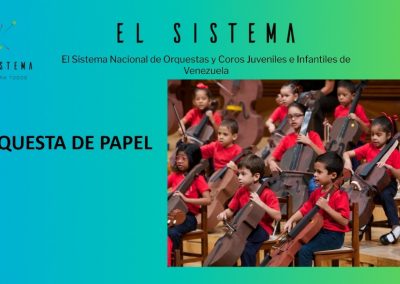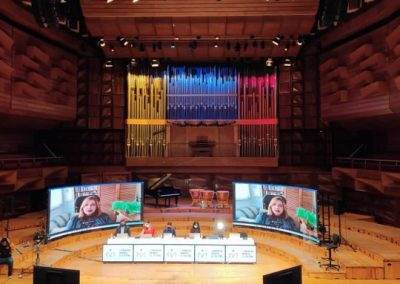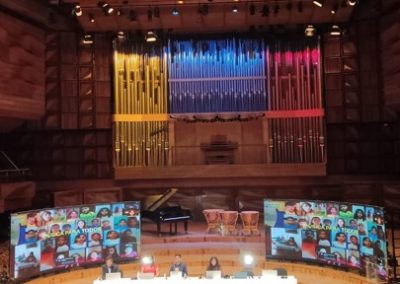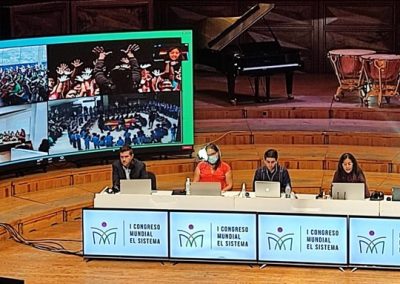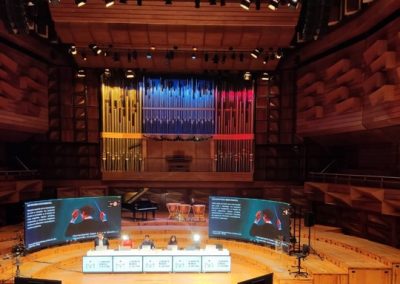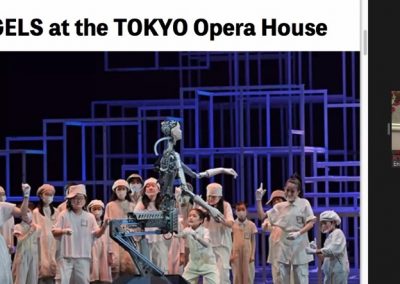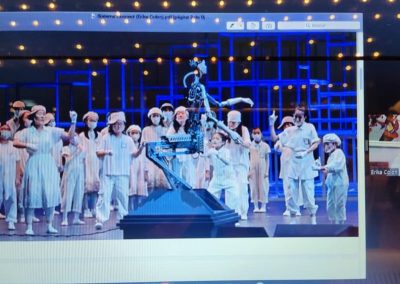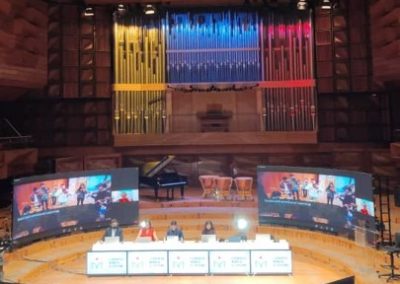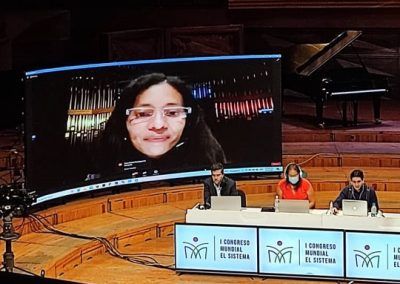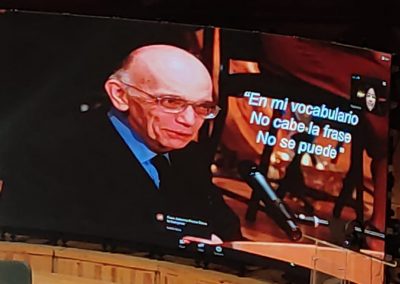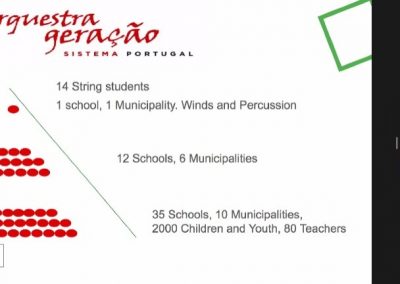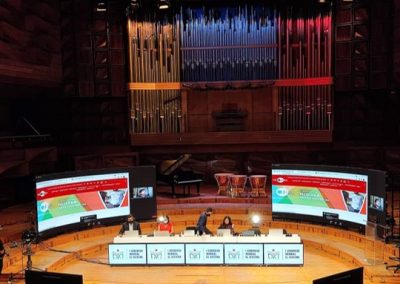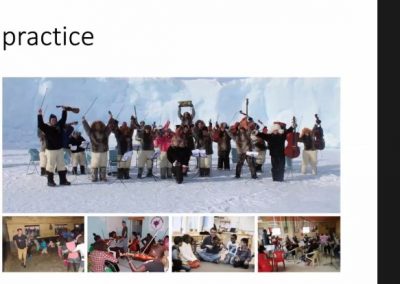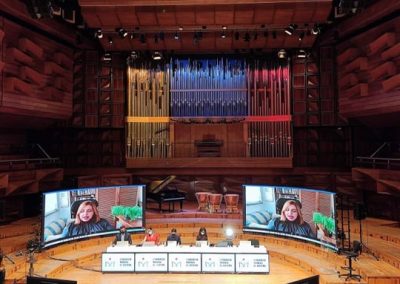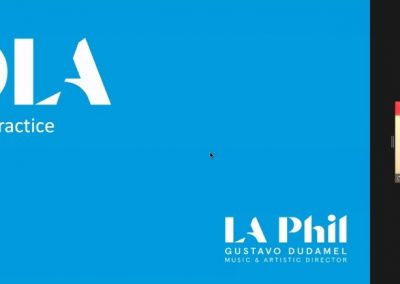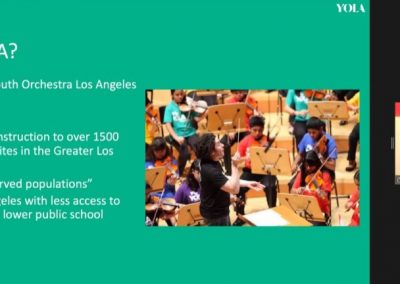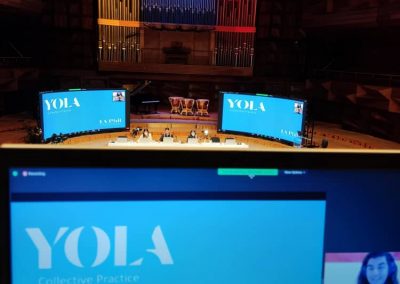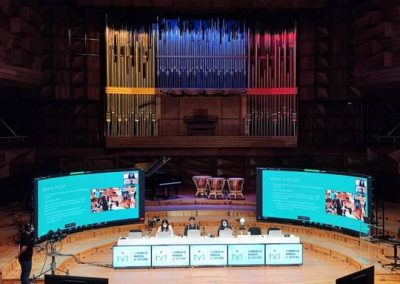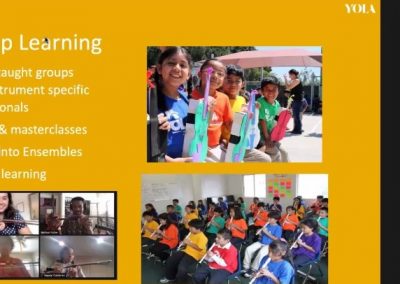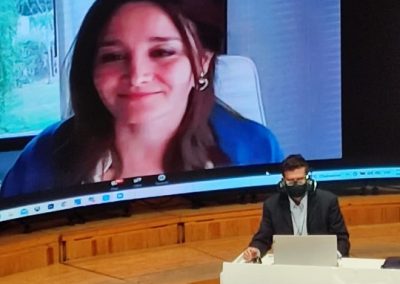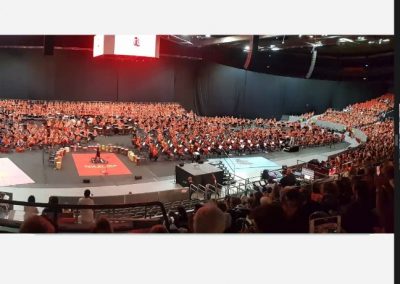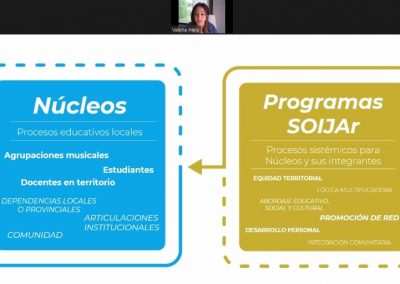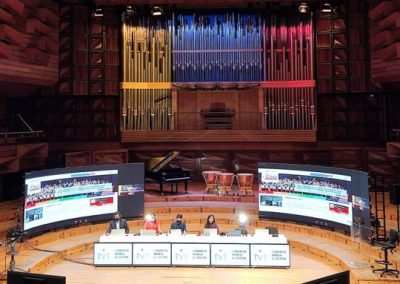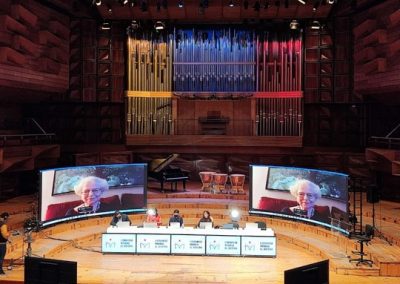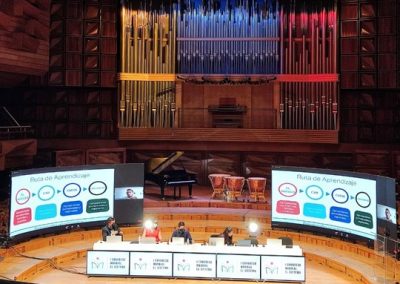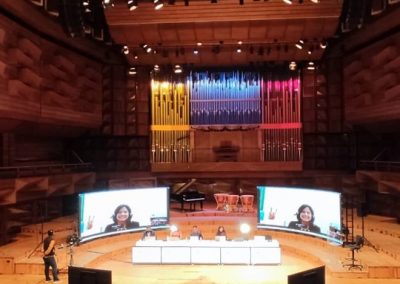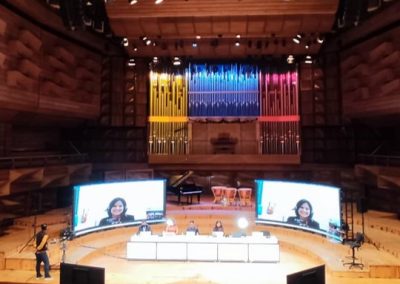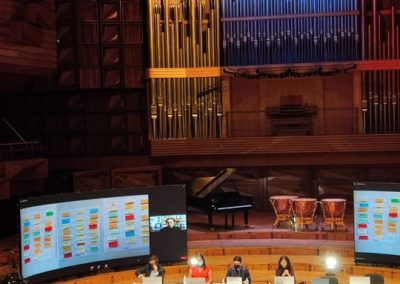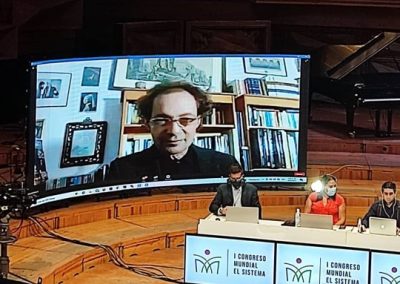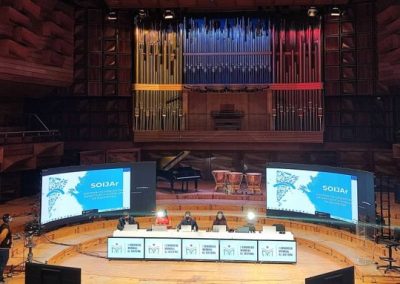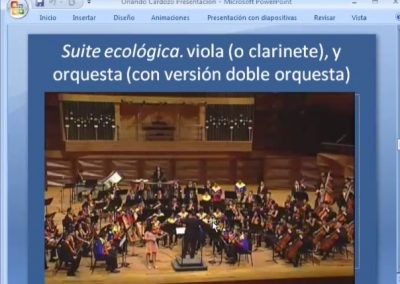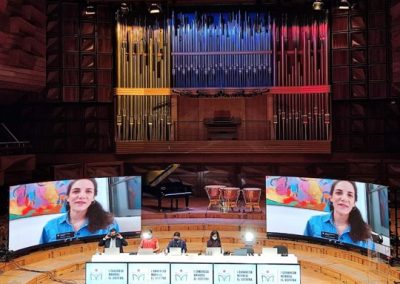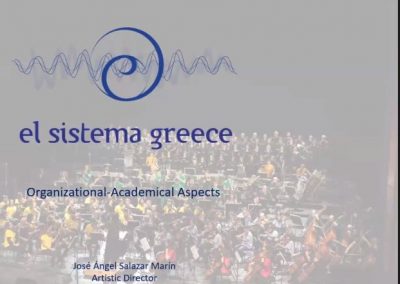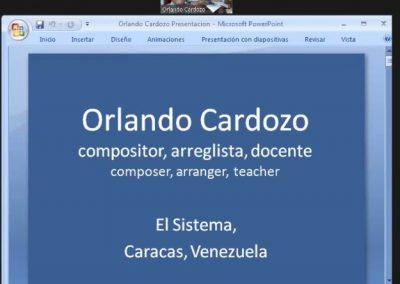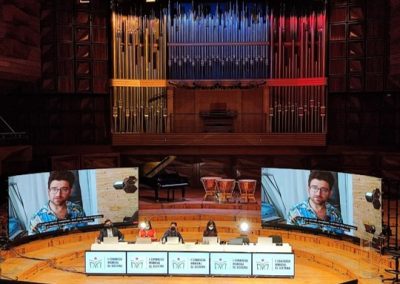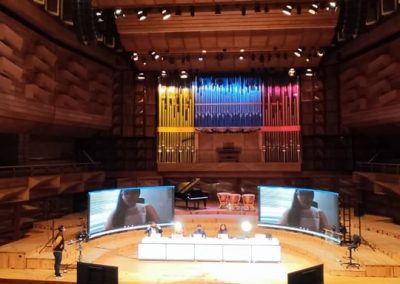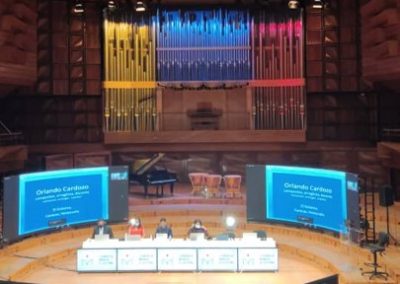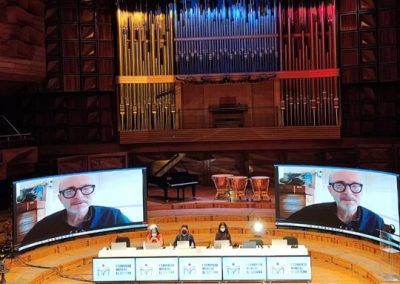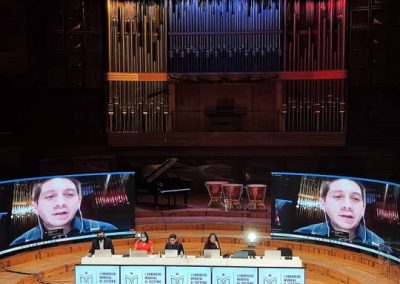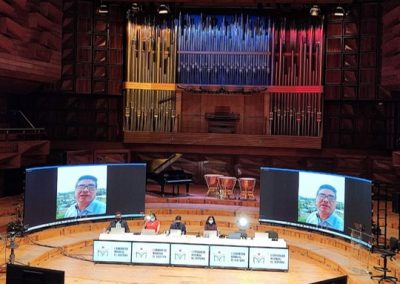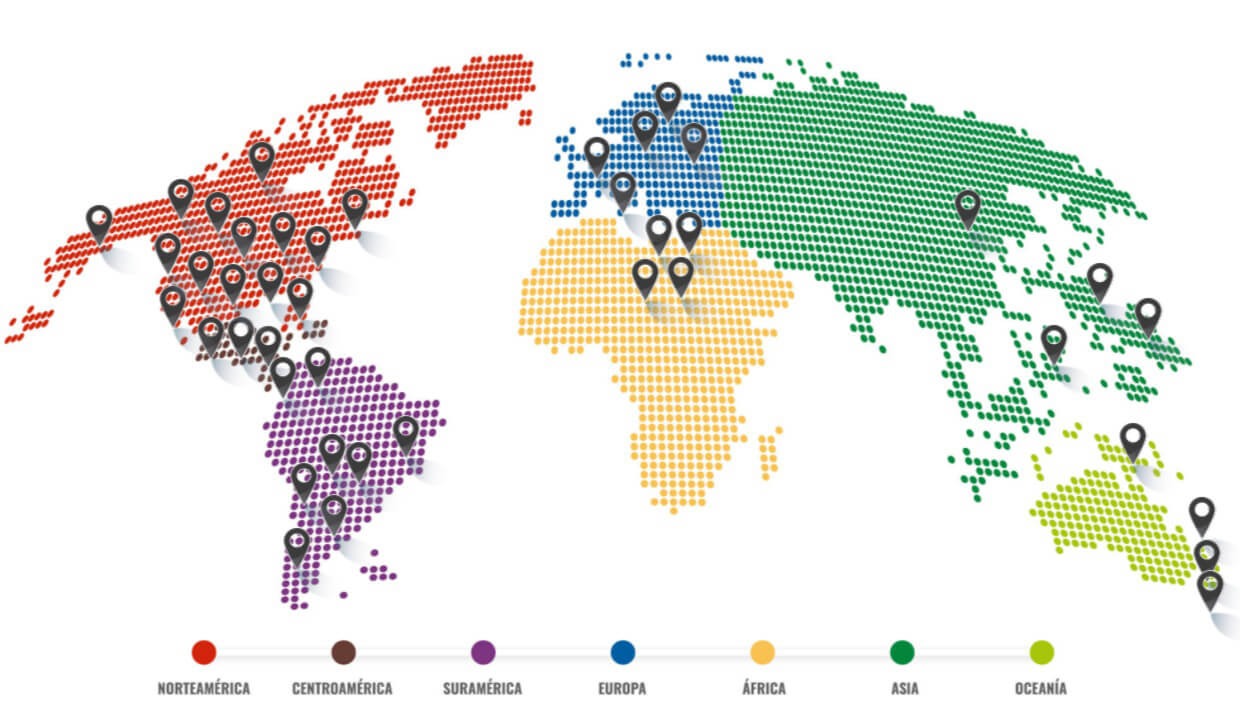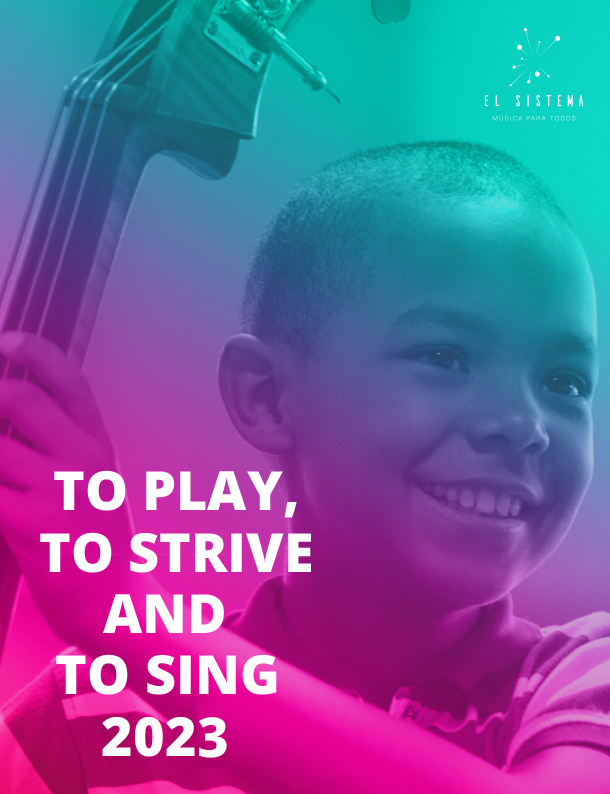A day full of faith marked the initial meeting of the I El Sistema World Congress
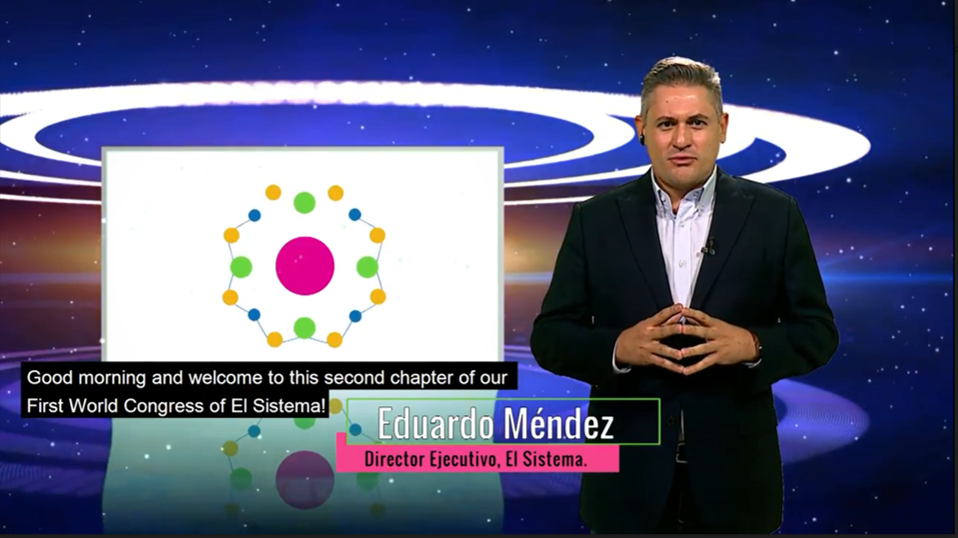
From the presentation of the philosophical bases, through the organizational structure and experiences of collective practice, to the creative process of composition, the programming for this September 28 reaffirmed the commitment to continue taking music beyond academic learning
Press El Sistema
The commitment to continue taking music education beyond academic learning, as well as creating new processes of approach for children and young people who participate in all international programs inspired by the Venezuelan model, was part of the spirit drawn in the first initial day of this First World Congress El Sistema.
After expressing the joy of reconnecting through digital media, participants and special guests praised the initiative, leaving testimony of the importance of continuing to collect the experiences of sister institutions in the five continents, in order to continue building and transforming structures in favor of the collective practice of music.
The program for this September 28 offered an extensive agenda that opened with the greetings of our Executive Director, Eduardo Méndez. In his welcome greeting, the emotion of materializing one of the many wishes of Maestro José Antonio Abreu stands out, seeing that more than 60 social work programs are connected to music.
Next, Leonardo Hurtado, National Manager of the Professor José Antonio Abreu’s Chair of Thought, introduced the intellectual and human conceptualization that characterizes the model created by our founder. “Working for children and their development was always his vision.”
After this presentation, the exhibition on the subject of collective practice began with presentations by Josbel Puche, Manager of the Musical Initiation Program and creator of the so-called Paper Orchestra; and Tupac Rivas, director of the San Agustín Nucleus representing Venezuela. “To continue playing and singing with the firm conviction that miracles exist with music” was the phrase expressed by Professor Rivas at the end of her speech.
Also participating in this section were the experiences of the Conect System in Japan, represented by Erika Colón, who focused her presentation on the work of the White Hands Choir in the Japanese capital; The Sweden System in the voice of Ron Davis Álvarez, who spoke of the formation of nuclei and orchestras based on the musical teaching structure in the Scandinavian country and the incorporation of refugee children and young people to learning; the Geracao Orchestra and the 35 schools created in Portugal under the guidance of Juan Carlos Maggiorani.
As part of this panel we were also able to learn about the professionalization opportunity offered by the Neojiba Program in Brazil with José Enrique Campos at the helm; as well as the work carried out by Olivia Salas, Teaching Artist and Education Administrator in the Los Angeles Philharmonic Youth Orchestra program and Daniel Jacobs, teaching artist of the Los Angeles Philharmonic Youth Orchestra (YOLA).
Then it was the turn of the organizational issue with presentations by Andrés David Ascanio Abreu, Musical Academic Director of El Sistema, who detailed the training structure and the evolution of the organization chart of the institution created by Abreu 46 years ago; José Ángel Salazar who works as Artistic Director of El Sistema Grecia, leading musical training in a difficult social context that also includes the reception of refugee population; and Valería Atela, who spoke about the growth experience of the System of Children and Youth Orchestras in Argentina with mixed financing.
Also part of this group of exhibitors were Helen González, Director of the Music 100×35 Program that addresses social and cultural work in Puerto Rico; María Majno, vice president of the El Sistema Europa Association and director of El Sistema in Lombardy, who began working in Italy under the guidance of the late maestro and orchestral conductor, Claudio Abbado. To close, Marshall Marcus, founder of El Sistema Europa, presented, who detailed the forms of membership and the network of connections generated for the creation and promotion of cultural events focused on music.
During the last part of the day, the composers presented by the guest teacher, Diana Arismendi, gave their presentations. Here it was the turn of maestro Orlando Cardozo, who highlighted the work of creating the repertoire for the Alma Llanera Program; Gerardo Gerulewicz, who detailed the academic and pedagogical work; Eleni Arapoglou, who, in addition to narrating his experience in Greece, emphasized giving space to the tempo of the composition; Albert Sanz, who shared a beautiful anecdote of meeting flamenco culture in Spain and left the need to continue bringing music to popular circles; and Carlos Medrano, who drew the creativity that he exercises from Ecuador to write works in simple formats adapted to the learning needs of children, using as an example his composition Merengue de un finger.
The First El Sistema World Congress, sponsored by the United Nations Development Program (UNDP) in Venezuela, continues on September 29 with an extensive program dedicated to the topics: The social and its impact with 10 presentations from the invited programs and The artistic, the concert and the rehearsal with 6 presentations from the participating programs.
To continue shaping the future is the mission of the National System of Youth and Children’s Orchestras and Choirs of Venezuela, whose governing body is the Simón Bolívar Musical Foundation, attached to the Ministry of People’s Power for Office of the Presidency and Follow-up of Government Management of the Republic Bolivarian of Venezuela.
